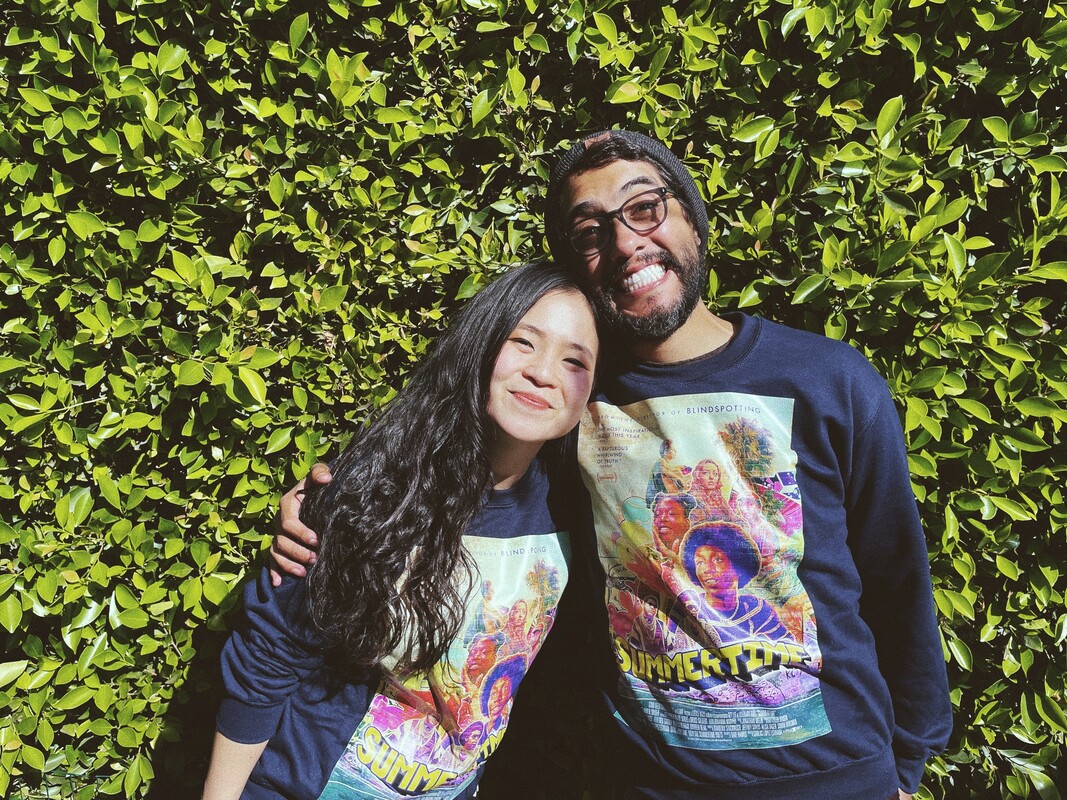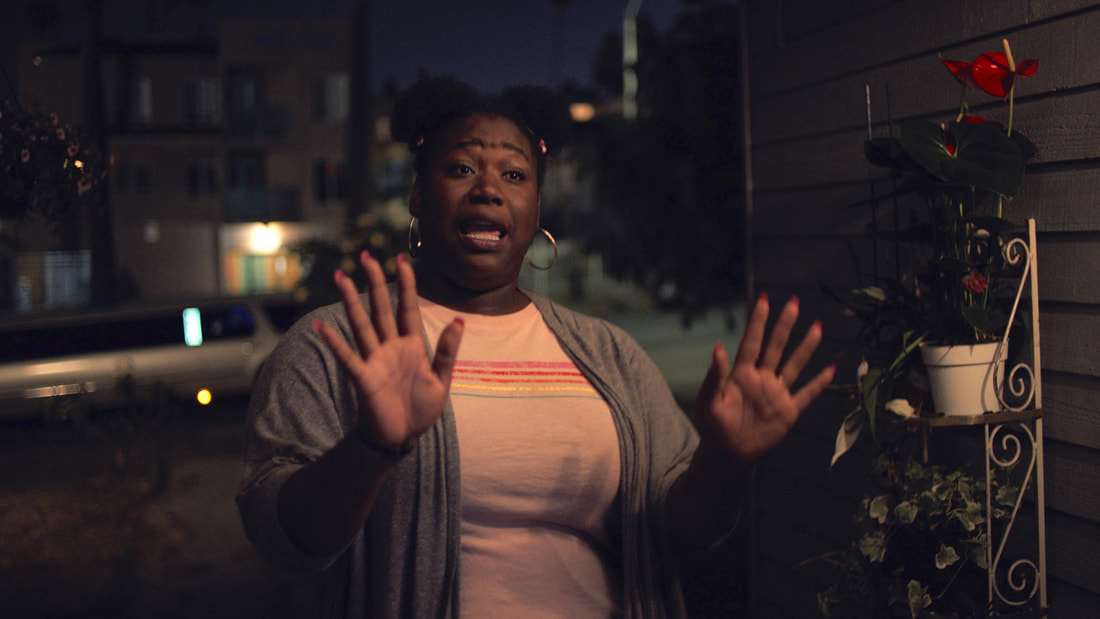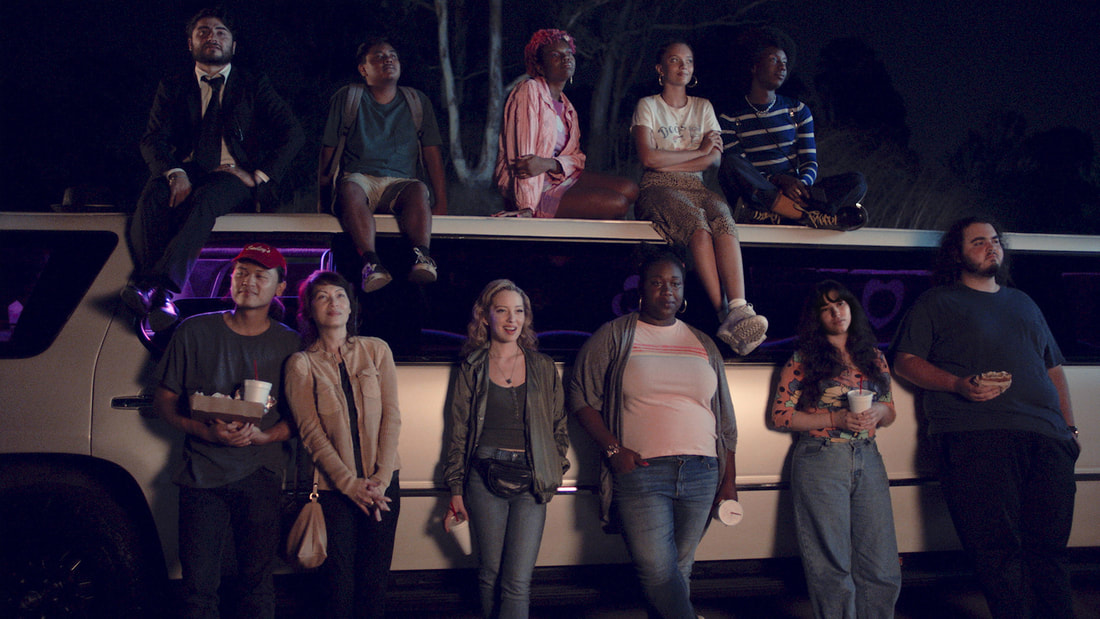|
Interview by Sean Boelman
Having directed the indie darling Blindspotting and having since released the Disney animated hit Raya and the Last Dragon, filmmaker Carlos López Estrada’s second feature Summertime (which was made before Raya) is finally making its way to U.S. audiences on a wider scale. We at disappointment media got the opportunity to speak with Estrada about his wonderful mosaic of spoken word poetry set in Los Angeles in anticipation of its release. Check out the interview below!
On Spoken Word Poetry
disappointment media: This is your second film to use poetry as a medium of storytelling in film? What do you think of the use of that as a whole?
Carlos López Estrada: You know, my life has surprisingly led me into this community of spoken word artists. And it was unexpected, it was not a community that I belong to. Like, my upbringing was so far from that, I was born in Mexico City. But I sort of, like, found a place in it, and I am so happy to be surrounded by so many wonderfully talented artists, a lot of them young, and they've all taught me so much about creativity and about art, about activism and organizing, and like the responsibility that we have with our work as artists, as creative people. So I've kind of taken it as like a personal mission to just do anything within my power to help support this community because it's given me so much. And I feel like so many other people, like myself can benefit from learning about them. So, you know, Summertime is just an excuse to do that, to try to introduce as many people as possible to them. disappointment: You mentioned some of the young talent in the film, and they're amazing. How did you find these specific people featured in the film? Estrada: So we worked with a nonprofit organization called Get Lit from Los Angeles, and they work with local high schools, essentially promoting literature through spoken word poetry. And because they work all across the school district, the makeup of the group is like incredibly diverse and eclectic, and from every single neighborhood of Los Angeles. So I was introduced to the organization by a friend, they invited me to a spoken word showcase. And from there came the idea to try to adapt that experience into a movie. On Capturing This Community in L.A.
disappointment: One of the things that really stood out to me about this film was that there were so many characters, but they were all very fleshed out and felt lived in. How did you work to create these?
Estrada: I'm so glad that you say that. Because that was definitely what we wanted to accomplish. It feels like that because the poets really put their personalities into them because they created the movie with us. It wasn't like I came in and gave them a script and said, "Hey, learn your part and let's develop your character." This was really them sharing their poetry. This was them giving us an insight into their lives. Like many times we shot in their houses, we shot with their family members, with their friends. And they're the authors of the movie, it's their film, and we got to create it around them. So that's really sort of why I think it feels so real, is because, you know, they're not playing characters. They're just playing versions of themselves, and they're exploring things that are important to them. disappointment: What was the difficulty of telling so many stories in a single film? Estrada: So many difficulties. Well, first of all, just because we had the summer and only the summer to workshop the movie, because many of them were graduating high school, and were sort of like going all over the place afterwards, whether it was work or whether it was school. So if we wanted to make the movie with this group of people, we had to shoot it over the summer. And this was April when I first met them. So that gave us only a handful of months to develop, to script, to rehearse, and to shoot the movie. And there were so many people involved. So it was really a series of summer workshops every day for about two and a half to three months, we met, sometimes as a group, sometimes with individuals, sometimes in smaller groups. They would bring poetry, we would put it up on boards and find a way to put it all together. Like figure out what locations we wanted to shoot in, in a map of LA, figure out where each poem would fit and how we would move through it. So there was no one formula of like, "This is how we did it." I feel like every interaction with each of the poets was different. And every scene required such different tools. Like, we were in a new location, we were with a new cast you know, many times the tone of the movie shifts a little bit depending on who you're following. So I think that it's chaotic, but I think that's what hopefully gives the movie its personality. disappointment: Do you have a specific performance or performances in your film that you would call your favorite? Estrada: Um... there are so many. I mean, there's one by a poet named Marquesha, towards the end of the movie, where she confronts an ex=lover about, you know, some kind of like trauma that had been built up in her. And that scene just hits me every single time and filming that scene was such a memorable experience. And Marquesha is just such a brilliant, brilliant poet and performer, so I would say probably that one, but I do think I've gotten really close to the poets and I feel like every single scene comes with like a history of how it came together, how we shot it, what it meant to the poet, so it's multifaceted. disappointment: So there are a lot of scenes that are based on individuals, but there are also a lot of them that come together, like the scene in the burger joint. How did you capture this feeling of community within the poets? Estrada: I mean, I think it was mostly what you just said. Rather than like creating it, it was just capturing it just because this community already existed, these poets had been performing with each other for years, some of them grew up together, some of them have known each other for over 10 years. So there's a bond and there's a familiarity there that is really sort of like the essence of this community. And we just tried to create that as much as possible. through the poetry through the scenes, bringing them together, and also on the shoot. Like the poets would show up on set on days that they weren't even shooting, they would just show up to hang out, they would run lines with each other, they would rehearse the poetry, they would give notes, like performing notes, to each other. So it was in front of the camera, and behind the camera, there was a real feeling of community that I think is really sort of like the magic behind the film. On the Meaning of Summertime
disappointment: The film is obviously a love letter to Los Angeles. Do you have a favorite part of the city of Los Angeles? Like just a favorite thing about it?
Estrada: Oof, that's... what is it, what is, what is it? I think I love locations or events that present opportunities for this kind of intersectionality. So whether it's a Dodgers game, or whether it's a protest, or sitting out in the park, like in Echo Park, and just like being hit by all these different stories and kinds of people with different cultural backgrounds and ethnicities. I feel like, a lot of cities do that, but LA just is so vivid, and the amount of languages that you get to hear, the amount of kinds of music that you have to hear, if you drive across the city, the kinds of food that you're exposed to. So I don't know, I think that's what I love the most about the city, just when you're out in public just like being in this constant state of getting hit by stimuli and learning so much about people whose cultures are foreign to our own. disappointment: Several of the performances in the film deal with some very weighty and timely issues. What were some things that you hope that this film contributes to the conversation about? Estrada: I just feel like it's a place where so many important voices, so many important stories intersect. And I feel like what that initial poetry workshop did for me, and what I hope the movie does is just generate a lot of empathy in people who watch because I feel like many times, myself included, we get to experience life through a singular perspective that doesn't often leave room for other voices to affect or impact. And what I think the movie does is show you one city, especially a city that I think a lot of people feel like they know really well just because it's been documented so much in movies and media. And it gives you so many different layers and nuances to something that we believe to know well, so it shows you 27 different points of view of how to understand the city differently, and how people in the city are existing, the problems that they're dealing with, the things that excite them, things that confuse them. So I feel like what it did for me is that it really brought the city to life. And it showed me nuances and layers to it that I believe are so important. So I hope that people who get to see it have a similar experience and that they welcome this chaos and learn to embrace it and appreciate it and enjoy it. disappointment: One of the things that really stood out to me about this film is how there's so much Latino and other people of color representation in the film. Why do you think that minority stories like this are so important to be heard and seen? Estrada: Just because they haven't been heard and seen for a really long time. And I think we're entering an age where that is not excusable anymore. And I feel like people are just really committed to bringing stories that haven't occupied the mainstream into the mainstream. And, you know, I'm definitely one of those people. And I feel like for the same reason we were speaking about earlier, I feel like we live our lives with such a singular vision that is not very often challenged, or, like complemented by other points of view. And I feel like just pushing to make movies and to bring stories to light where perspectives are different from our own, and perspectives that haven't really been given as much importance as others are being highlighted are just so important, because it makes our life and our point of view so much more layered and interesting. So I don't know, I find that to be sort of a big part of who I am as a person and as an artist, and I feel like I'm here because people that I looked up to did the same kind of work and inspired me a lot. So I'm hoping that by doing this work, you know, I can also pass that along to other people who may also be as passionate about this as I am. disappointment: This is like a community that isn't really highlighted a lot, a lot of people don't know about it. What do you hope that people come away from the film knowing about this community? Estrada: I hope that their interests are piqued and that they find ways to get engaged and find ways to follow and find ways to support these artists, the organization that we're working with, and I mean, this one's very particular to LA, but also the spoken word community, in the States and across the world is like growing and growing and becoming more prominent. And, you know, we saw in the inauguration speech this year, we see it more and more in movies and TV. And I think, you know, if people watch the movie and and get excited about this, this sort of art form, then I think they should try to look at their local organizations, see what are the personalities and the names and the people that are supporting these artists and become involved. Because I think, at least for me, it's been a very rewarding experience.
Summertime hits theaters on July 9.
0 Comments
Leave a Reply. |
Archives
March 2024
Authors
All
|
|
|
disappointment media
Dedicated to unique and diverse perspectives on cinema! |



